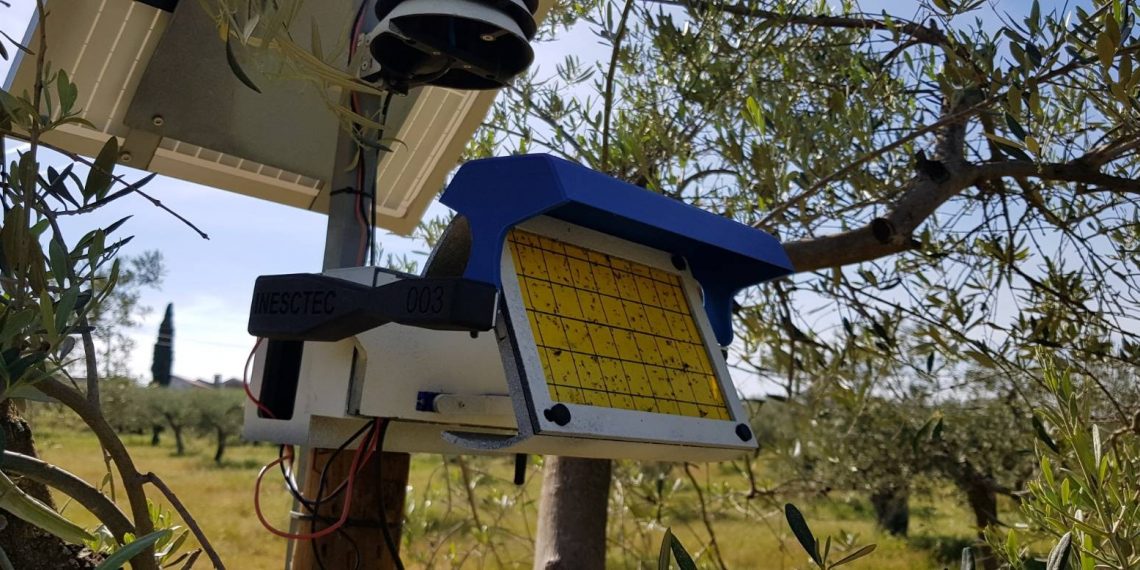The InOlive project reached the end; the olive groves’ smart monitoring solutions developed within the scope of the initiative are currently being used. INESC TEC has created a smart trap, a technology that could be optimised to other crops.
The olive groves are one of the largest crops in Portugal; but even the olive trees, quite robust, are exposed to pests and diseases. These are unpredictable threats, difficult to address – but a solution developed by INESC TEC could help. The InOlive project, which has come to an end, focused on creating an innovative, low-cost decision support solution that allows olive growers to monitor crop health in real time.
One of InOlive’s main goals was to develop a smart monitoring tool to prevent pests – an issue further aggravated by climate change. And one of said solutions was a robotic smart trap.
That’s where INESC TEC came in. Lino Oliveira, researcher and coordinator of the project, explained that “our [INESC TEC] role focused on the research and development of the Smart Trap, featuring two main components: a physical component, i.e, the robotic structure; and the automatic pest detection module from images, using Deep Learning techniques”.
The trap incorporates a set of sensors that allow users to monitor threats autonomously and simultaneously – like the olive moth, the olive fly, or the olive anthracnose -, but also climate data. This is quite important: climate change causes an increase in pests and diseases in the olive groves, causing losses, increased production costs and impact on product quality.

The consortium led by Geodouro, bringing together INESC TEC, the Polytechnic Institute of Bragança and APPITAD, also developed, over the two years of the project, a Special Data Infrastructure. This integrated monitoring solution provides geospatial data with useful information to agricultural agents.
The technological solutions are already operating at several olive groves in the Mirandela region – “a site selected for the demonstration pilot”, said Lino Oliveira. The current goal is to advance the project even further. “The consortium seeks to optimise and turn the solutions into products suited for other territories, while extending their use to other crops”, stated the INESC TEC researcher.
The InOlive project was funded by the Portugal 2020 programme with a total of €430K, and it started in September 2021.




 News, current topics, curiosities and so much more about INESC TEC and its community!
News, current topics, curiosities and so much more about INESC TEC and its community!